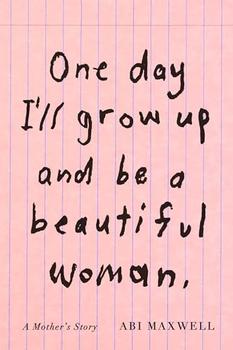Book Club Discussion Questions
Want to participate in our book club? Join BookBrowse and get free books to discuss!
Please be aware that this discussion guide will contain spoilers!
-
Small-town Yankees are notoriously suspicious of outsiders. Despite the Maxwell family's deep roots in Gilford, New Hampshire, they are made to feel like others. How does this betrayal of "one of their own" affect your perception of Gilford's residents? Of small towns in general? Of the Maxwell family?
-
Abi's brother Noah, although absent, is a central character in this book. How do his experiences inform Greta's story? How do they affect Abi's reactions to the town's bigotry?
-
Abi's mother reacts poorly to her granddaughter at first, but she changes her behavior in a matter of months. What do you think changed her attitude?
-
Dr. Rudine Sims Bishop of Ohio State University famously described libraries as providing windows, sliding glass doors, and mirrors. A window lets you see into another culture, time, and place and experience things beyond your own lived experience. A sliding door lets you step into that world, interact with the characters, and return with new understandings. And a mirror, of course, reveals you to yourself. How does banning books change this idea of a library's purpose?
-
Greta experiences a change in behavior and emotional balance after she discovers the word transgender (p. 74). Likewise, Abi sees more options after she realizes that the word autism describes her daughter (p. 36). How does access to basic vocabulary empower people to express and address a situation?
-
Consider the parallels between the Maxwells' struggle to obtain special education support for Greta's autism and the fight to secure her civil rights as a transgender student.
-
The kindergarten teacher's armband system (p.36) stigmatizes kids who are assigned a red band. What might have been a more effective, less shame-based approach to classroom management?
-
The school's initial assessment of Greta for special education states that she is suffering from "lack of opportunity or traditional behavior." What unspoken biases are coded into these words?
-
On p. 40, the author writes, "we had an old rainbow flag nailed to our garage in the center of a street lined with crisp American flags." What values underlie the displaying of these two flags? Are they mutually exclusive, or can one be both an LGBTQ+ ally and a proud American?
-
Abi's adolescence informs her values as a parent. She felt unprotected, so she fights to protect Greta. Those who spoke at the board meeting claimed they were protecting their children. In what ways does invoking "the protection of children" allow for people at the board meeting to justify themselves? What questions should we ask to determine who faces a true threat?
-
Well-meaning people tell Greta she can be any kind of boy she wants. Grow your hair out; wear a dress. It's okay. Then they seem surprised when she bluntly informs them they're missing the point. How do society's gender expectations blind even those with good intentions?
-
The stress the Gilford residents put on Abi and Paul is crippling. How do Abi and Paul process it differently? Is there a "right way" to cope with trauma? How do you think you'd react in such a crisis?
-
Attention has been given to the effect of social media on children. But in this story, and many others like it, adults use social media to ostracize, spread false information, and galvanize bigotry and fear from behind the safety of a keyboard. How should members of a community balance freedom of speech with responsible behavior?
-
Lived experience informs the actions of the pastor, Christopher. He speaks publicly about his grief and loss, yet congregation members like Katie and Dan disregard this message. How do you think these people justify the disconnect between their actions and what their pastor is preaching?
-
One of the arguments put forth at the school board meetings is that a trans person's right to their own pronouns is coerced speech. They are being forced to acknowledge the validity of something they don't agree with. What is the harm in this?
-
Concessions like Greta using the nurse's bathroom and the parents being told to consider homeschooling are tacit admissions that institutions don't like change. How are these approaches exclusionary? What might effective leadership look like in such situations?
-
Katie's behavior after the board meetings is either disingenuous or oblivious to the harm she caused. Reread the exchange of emails between her and Abi and consider what is truly motivating Katie.
-
What does it suggest about the Facebook user (p. 262) who is comfortable expressing his racism openly, yet delicately uses the euphemism crap? Is there a difference between manners and morality?
-
Skiing becomes an outlet for Greta, as it had been for Abi when she was navigating the trauma of her own childhood. Participation in sports has been proven to help children's physical, mental, and social development. What effects might barring transgender children from sports have on an already vulnerable community? What are the dangers of regulating bodies at any level of competition?
-
It took years for Abi and Paul to understand and accept Greta's gender identity, yet once they did, "it took only one look to see that a light had been turned on inside of her" (p. 207). Common arguments against validating trans kids are that they're just going through a phase or that they are too young to be making such monumental decisions. After reading about Greta's transformation, how has your understanding of gender and identity changed?
Unless otherwise stated, this discussion guide is reprinted with the permission of Knopf. Any page references refer to a USA edition of the book, usually the trade paperback version, and may vary in other editions.
